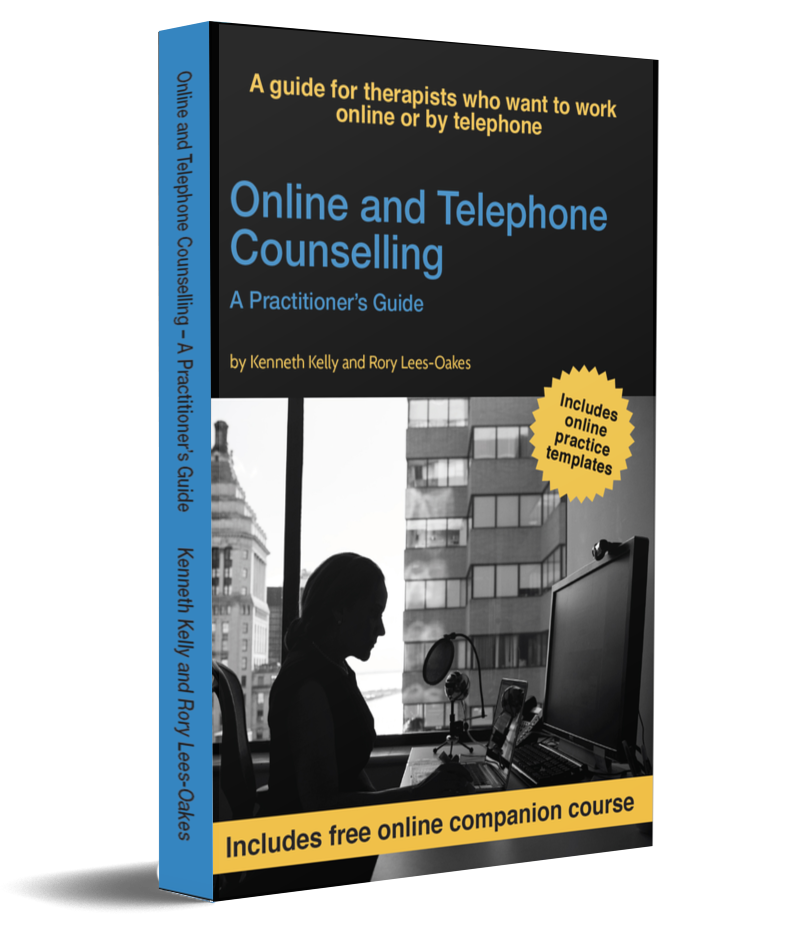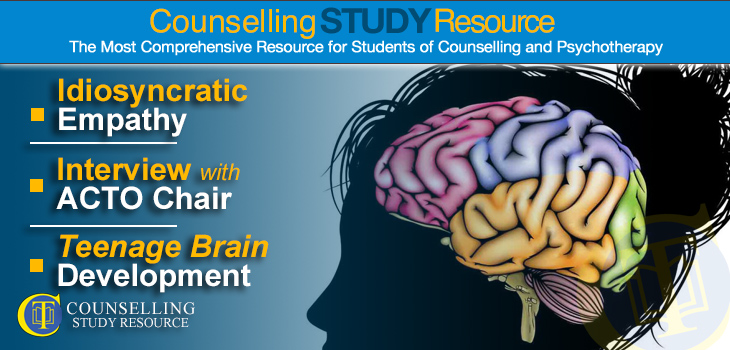180 - Teenage Brain Development
Idiosyncratic Empathy - Interview with ACTO Chair
Episode 180 of the Counselling Tutor Podcast opens with Rory Lees-Oakes and Ken Kelly discussing the skill of idiosyncratic empathy. Then, in 'Digital Counselling Revolution', Rory interviews Adrian Rhodes, Chair of the Association for Counselling and Therapy Online (ACTO). Finally, in 'Practice Matters', we have another guest - this time Kairen Griffiths, speaking about teenage brain development.
Idiosyncratic Empathy (starts at 1.30 mins)
In the Student Check-In, Ken and Rory explore idiosyncratic empathy, which is particularly relevant in both skills practice and written assignments.
Areas of this topic covered in the discussion include what it is and what it is not, examples of interventions that would show strong idiosyncratic empathy, and examples of those that would not (for example, 'rescuing' responses).
Understanding the term 'idiosyncratic empathy' can be made easier by breaking it down into the two words it comprises. The term was coined by person-centred therapist Jerold Bozarth, who asserted that empathy was dynamic, changing in line with the individual client and their specific situation.
This takes empathy to a deeper level, beyond the mere reflection of words to a more personal and individualistic level that is different in each therapeutic relationship. In other words, empathy is as varied as the different clients we are likely to meet.
You can download a free handout on idiosyncratic empathy here.
And if you're keen to learn more about this important skill, you might like to get hold of a copy of Ken's book, Basic Counselling Skills: A Student Guide, which includes a whole chapter on idiosyncratic empathy.
You can also hear explanations of the full range of counselling skills here - with audio files illustrating them in simulated sessions.
Interview with ACTO Chair (starts at 17.10 mins)

BESTSELLER
Online & Telephone Counselling Book
Available in Paperback and Kindle
Includes FREE COMPANION COURSE that you can do online to underpin and strengthen your learning
In Rory's interview with ACTO Chair Adrian Rhodes, you can hear about:
- the history of ACTO
- its founding members
- ACTO's purpose
- membership levels and what they mean
- benefits of ACTO membership
- similarities and differences between face-to-face and online therapy
- the therapeutic relationship when working online
- client presentations for which online therapy is particularly helpful.
You can read more about ACTO on its website, which there are plans to develop in the near future.
You might also like to consider our full course, Online and Telephone Counselling, which has already trained thousands of therapists in online working.
We are a recognised ACTO Online Training Provider and this course enables counsellors who successfully complete it to join ACTO at Level 1, with a subsequent option to take the assessment for ACTO Level 2 Professional Membership.
Teenage Brain Development (starts at 32.40 mins)
Rory talks to Kairen Griffiths, who has recently recorded a fascinating lecture for Counsellor CPD on teenage brain development.
Kairen and Rory talk about what you need to know to be able to work with teenagers or their carers, including:
-
- how and when the teenage brain develops
-
- the ways in which the development of the teenage brain may affect mood and behaviour.
The lecture will be invaluable for counsellors working with teenagers and also for those working with adults whose presenting issues relate to teenagers, supporting you to be able to offer ideas and strategies to help both these client groups.


